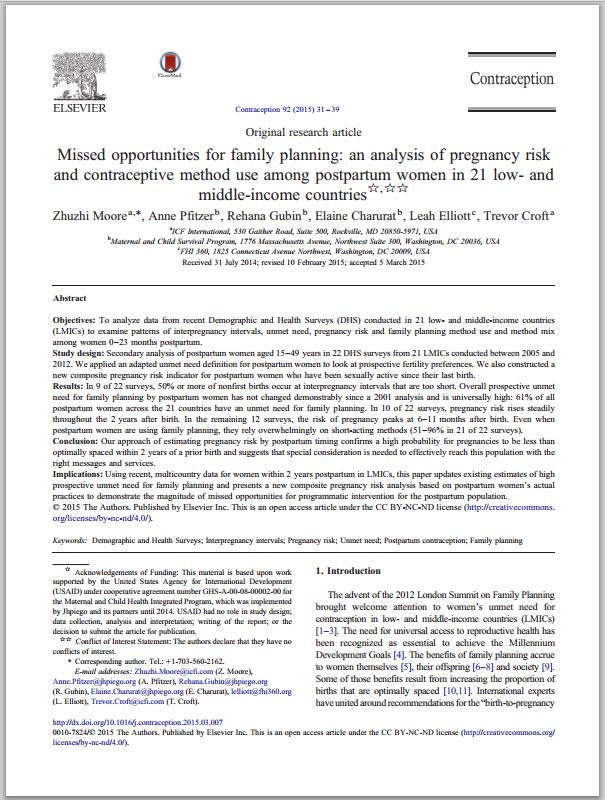Publish Date: March 2015
Author: Zhuzhi Moore, Anne Pfitzer, Rehana Gubin, Elaine Charurat, Leah Elliott, Trevor Croft
This open access, MCSP co-authored article in the journal Contraception analyzes data from recent Demographic and Health Surveys conducted in 21 low- and middle-income countries to examine patterns of interpregnancy intervals, unmet need, pregnancy risk, and family planning method use and method mix among women 0–23 months postpartum.
The countries reviewed were: Bangladesh, Burkina Faso, Ethiopia, Ghana, Haiti, Honduras, India (Bihar and Uttarakhand), Kenya, Liberia, Madagascar, Malawi, Mozambique, Nepal, Nigeria, Pakistan, Philippines, Rwanda, Senegal, Tanzania, Uganda and Zimbabwe.
The authors found, in 9 of 22 surveys, 50% or more of nonfirst births occur at interpregnancy intervals that are too short. Overall prospective unmet need for family planning by postpartum women has not changed demonstrably since a 2001 analysis and is universally high: 61% of all postpartum women across the 21 countries have an unmet need for family planning.
In 10 of 22 surveys, pregnancy risk rises steadily throughout the 2 years after birth. In the remaining 12 surveys, the risk of pregnancy peaks at 6–11 months after birth. Even when postpartum women are using family planning, they rely overwhelmingly on short-acting methods (51–96% in 21 of 22 surveys).
The authors conclude the approach of estimating pregnancy risk by postpartum timing confirms a high probability for pregnancies to be less than optimally spaced within 2 years of a prior birth, and suggest that special consideration is needed to effectively reach this population with the right messages and services.
Missed opportunities for family planning: an analysis of pregnancy risk and contraceptive method use among postpartum women in 21 low- and middle-income countries (1830 downloads )

